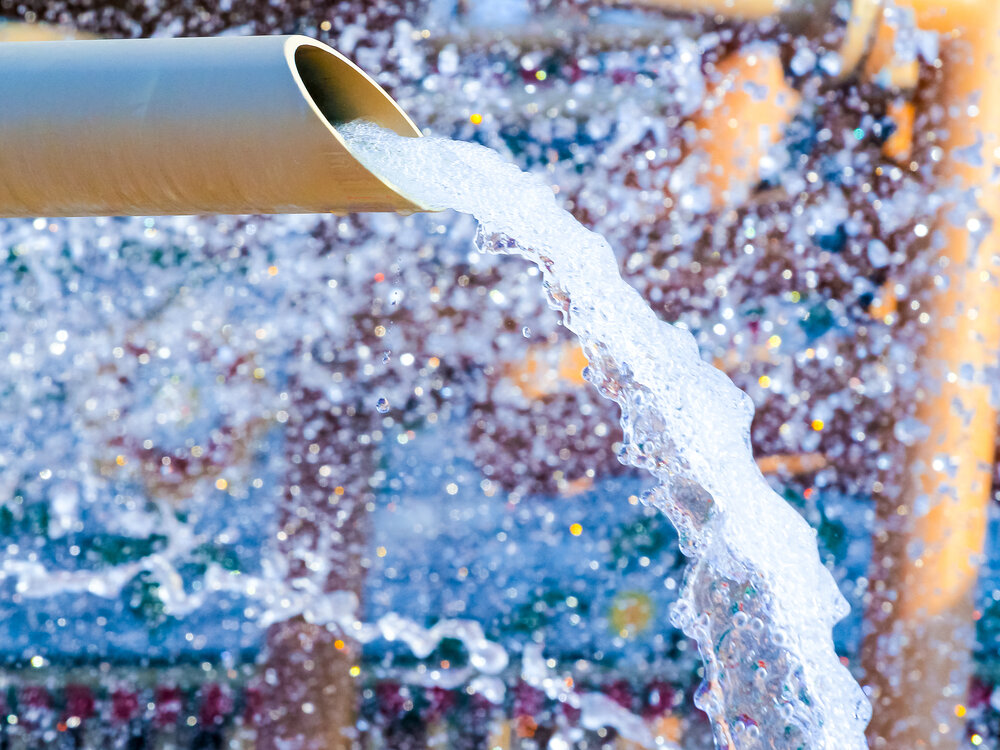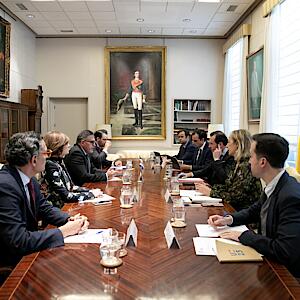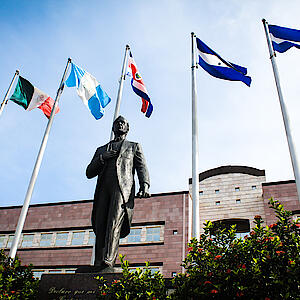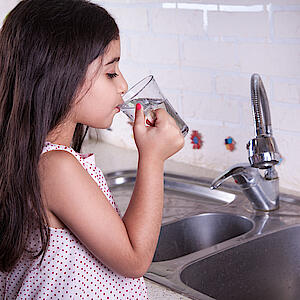CABEI supports water and sanitation program to improve quality of life for more than 800,000 Nicaraguans

The initiative, supported by the multilateral, is 96% complete and will benefit more than 15 municipalities.
Managua, March 31st, 2022.- In line with the human development and environmental sustainability pillars of its Institutional Strategy, the Central American Bank for Economic Integration (CABEI) has become one of the key players in guaranteeing safe and efficient water resources to more than 800,000 Nicaraguans through financial and technical support for Phase I of the Comprehensive Sectoral Program for Water and Human Sanitation (PISASH).
This program is being implemented as part of the Program for the Improvement and Expansion of Potable Water and Sanitation Systems in 19 cities, and is expected to have an impact on more than 562,000 people, who will have potable water service in their homes; and on another 272,000 people who will improve their hygienic conditions through sanitary sewerage services in 15 municipalities in the country.
"We are pleased to know that every day more Nicaraguans have the universal right of access to water, improving their living conditions through continuous service and sanitation. CABEI in Nicaragua is currently financing five initiatives in this sector, benefiting almost two million people and totaling investments of more than US$ 571.73 million," expressed CABEI's Executive President, Dr. Dante Mossi.
The initiative not only seeks to improve and expand water and sewerage services, but also to strengthen the operational capacity of the Nicaraguan Water and Sewerage Company (ENACAL) through the establishment of six regional immediate attention centers (CRAI) in the cities of Granada, León, Estelí, Juigalpa, Bilwi and Bluefields.
CABEI is contributing US$100 million for the development of this initiative, of which US$96.2 million had been disbursed by December 2021, resulting in 100% completion of the water and sanitation works under contract.
The Program is also co-financed by the Spanish Agency for International Development Cooperation (AECID) with US$87.22 million, the Latin American Investment Facility (LAIF) with US$58.48 million, and the European Union Bank (EIB) with US$97.53 million.
CABEI participation in PISASH Phase I
As part of this social development program for the benefit of more than 800,000 people, three wastewater treatment plants and five potable water pumping stations were built, as well as the rehabilitation and construction of 15,326 potable water connections and 5,144 sanitary sewer connections.
Eufemia del Socorro Palacios, owner of a small bakery and beneficiary of the Program in the municipality of Masaya said "before we did not have water daily, today we do. Before we had to buy water at a high price, because we paid 200 córdobas to those who brought it to sell. Here in the business that is too much to pay just for potable water service, but now I am fine with the improvements that have been made". He added that "the workers' families, the vendors' families, the families of those who consume the retail bread, we all benefit."
Among the works completed were the improvement and expansion of potable water and sanitation systems in Acoyapa, Camopa, Cárdenas, Chinandega, Chichigalpa, Jalapa, La Trinidad, Malpaisillo, Managua, Masaya and Santo Tomás. Repairs to branches in Chontales, Boaco, RACN, Río San Juan and Juigalpa were also completed.
On the other hand, the CRAI works in Chontales are in the process of final reception and those in León are in the process of being awarded.
Access to potable water and sanitation is a human right and CABEI's financing for this program constitutes a new scenario in which the systems are managed with quality, efficiency and in a sustainable manner, so that the population can fully exercise its right to water and sanitation.





